Are you considering a career change and need to resign from your current position? Crafting the perfect resignation letter is essential to leaving on a positive note, especially if you're moving on to a managerial role elsewhere. In this article, we'll provide you with a concise and professional template that emphasizes gratitude while clearly stating your intention to leave. So, if you're ready to take the next step in your career, keep reading for valuable insights and tips!

Professional tone and language
Resignation from a position can be a significant step in one's career journey, especially when accepting a managerial role elsewhere. In this context, it's essential to consider the impact on both current employment and future opportunities. A formal letter serves as a professional means to communicate this decision while expressing gratitude. It's crucial to outline the notice period, typically two weeks for most industries, ensuring a smooth transition for the team. The letter should reflect a tone of appreciation for the opportunities and experiences gained, particularly regarding personal growth and career development. Including a willingness to assist in the training of a replacement or to help with the transition period can strengthen professional relationships and maintain a positive reputation. Avoiding negative remarks about the current role or organization is also key to leaving on amicable terms.
Clear resignation statement
Resignation from a current position, especially when transitioning to a managerial role in another organization, is a significant professional decision. Crafting a clear and concise resignation statement is essential for maintaining positive relationships and ensuring a smooth transition. The resignation should state the intention to leave, the last working day, and any gratitude for the opportunities provided. Clarity in communication helps to convey professionalism and respect for the current employer. A well-structured resignation notice can mitigate any potential confusion regarding future responsibilities or transition plans.
Last working day mention
A resignation letter indicating the intention to pursue a managerial role elsewhere typically requires clarity and professionalism to maintain a positive relationship with the employer. In such a letter, key elements should be highlighted, including the departure date and gratitude towards the organization. Example: The decision to resign from the current position, effective two weeks from the date of the letter, stems from the acceptance of a managerial role at a leading firm, XYZ Corporation, located in New York City. The final working day will be [exact date], allowing sufficient time for transition and knowledge transfer. Expressing appreciation for the opportunities and experiences gained at [current company name] is essential, emphasizing the professional growth achieved during the tenure. Offering assistance during the transition period can further solidify goodwill and assure a smooth handover of responsibilities.
Gratitude for opportunities
A professional resignation letter for transitioning to a managerial role at another company highlights appreciation for past opportunities and experiences. The document typically includes a clear statement of resignation, intended last working day (usually notice period of two weeks), and expressions of gratitude toward the employer and team. Mention specific projects (like "the successful launch of Project X") that have been impactful in career development. Acknowledging mentorship from colleagues or supervisors enhances the message. Concluding with an offer to assist during the transition period fosters goodwill and maintains positive relationships for future networking.
Offer to assist during transition
Transitioning to a managerial role at a new organization presents both opportunities and challenges for career growth. Acceptance of the new position may necessitate resignation from the current job, often requiring formal communication to supervisors and human resources departments. One may express gratitude for the experiences gained at the previous employer while ensuring a professional exit. Offering assistance during the transition period showcases commitment and responsibility, helping to maintain positive relationships and a seamless handover of duties. Ensuring all tasks are completed and offering to train replacement staff can facilitate a constructive departure.
Letter Template For Resignation For Taking Up Managerial Role Elsewhere Samples
Letter template of resignation for accepting a managerial position at a new company.
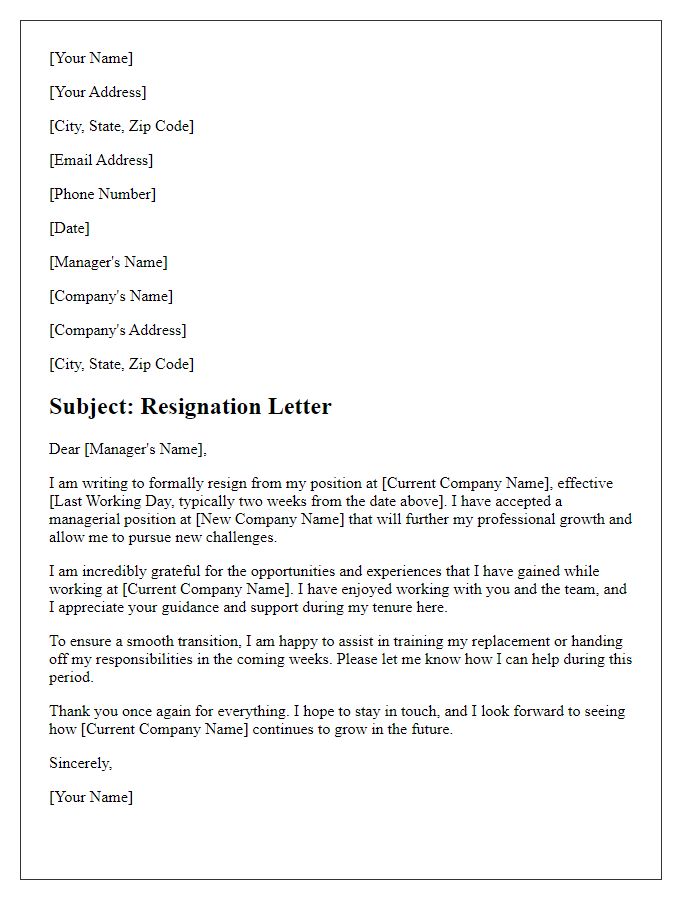
Letter template of resignation due to promotion opportunity in a different organization.

Letter template of resignation for pursuing a leadership role with another employer.
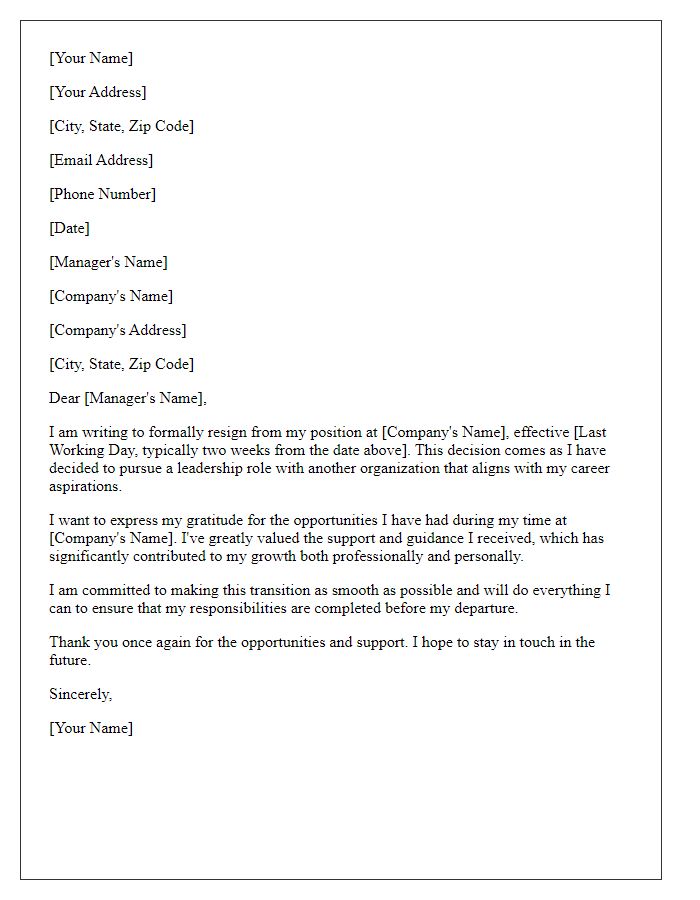
Letter template of resignation for transitioning to a higher-level management job.
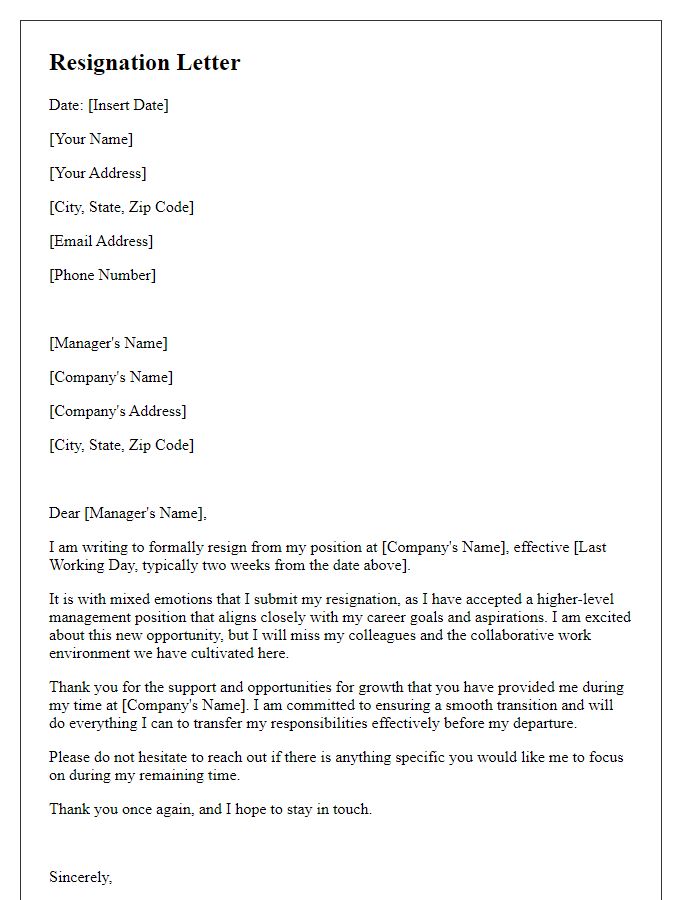
Letter template of resignation for advancing to a managerial position in a new firm.
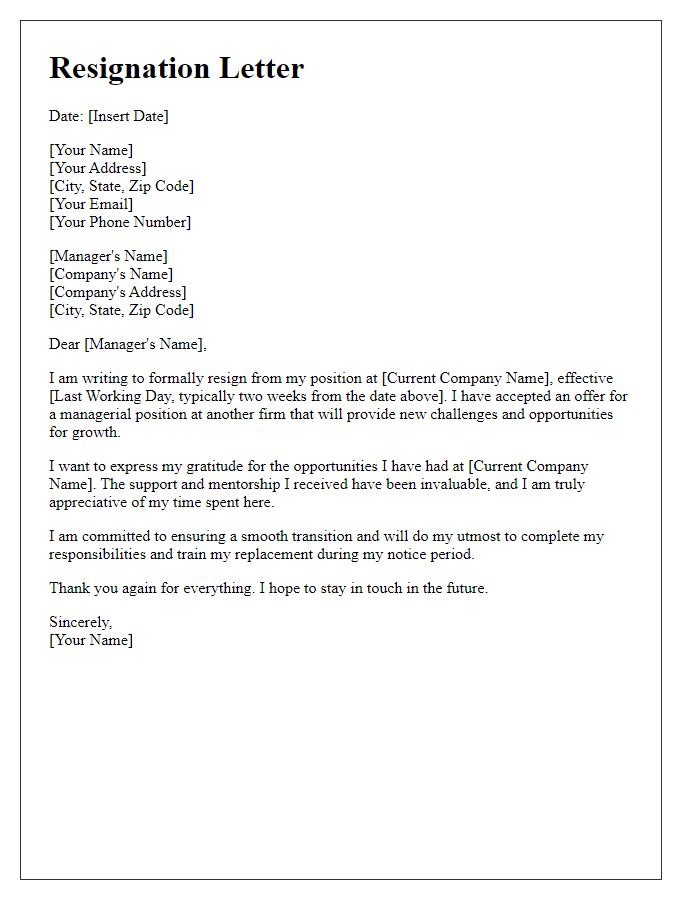
Letter template of resignation to accept a senior management role elsewhere.
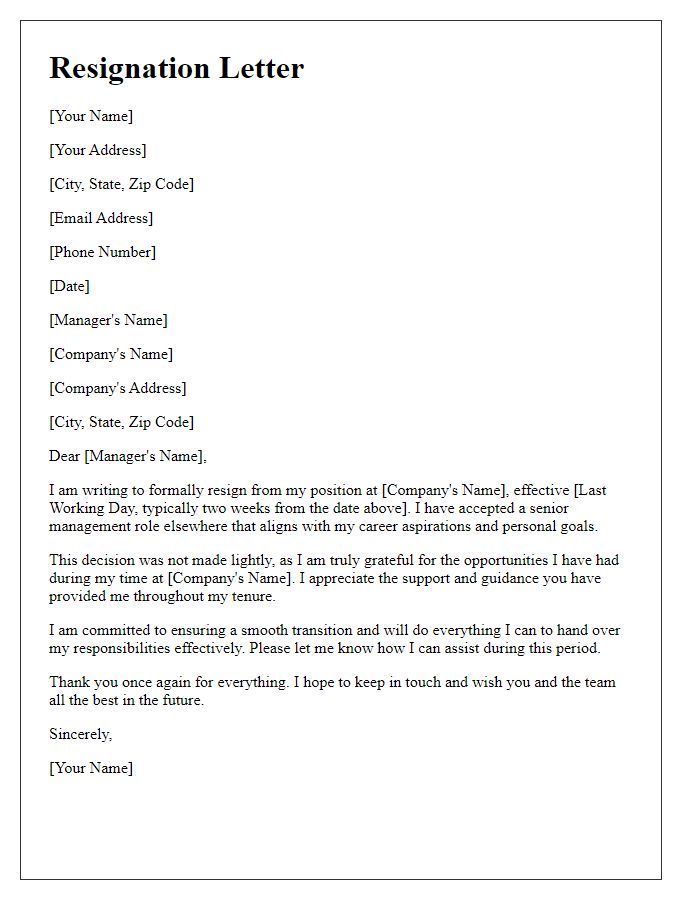
Letter template of resignation for moving into a managerial career path in another company.
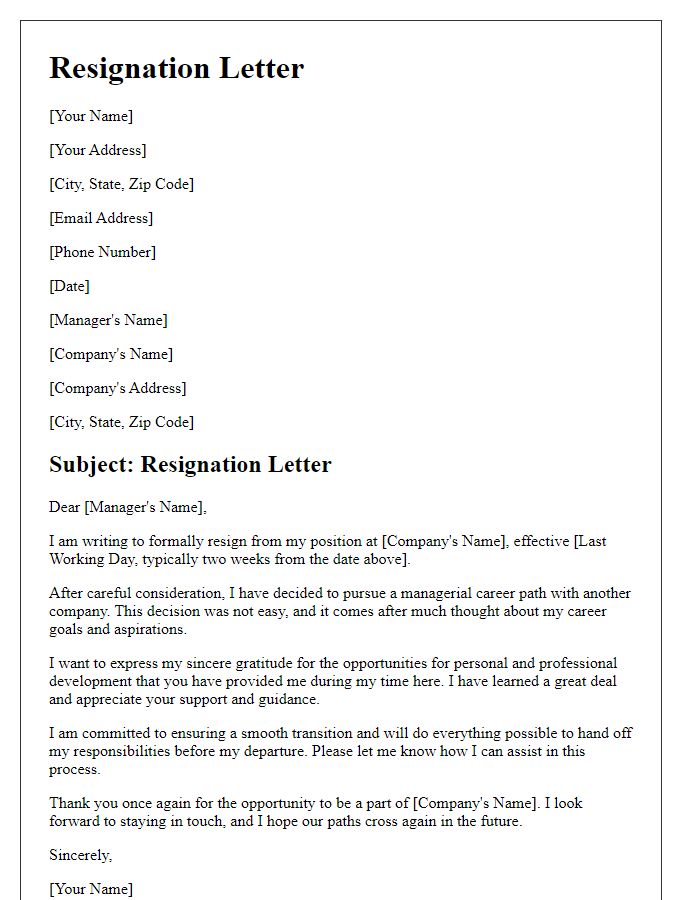
Letter template of resignation for relocating to a higher managerial position.
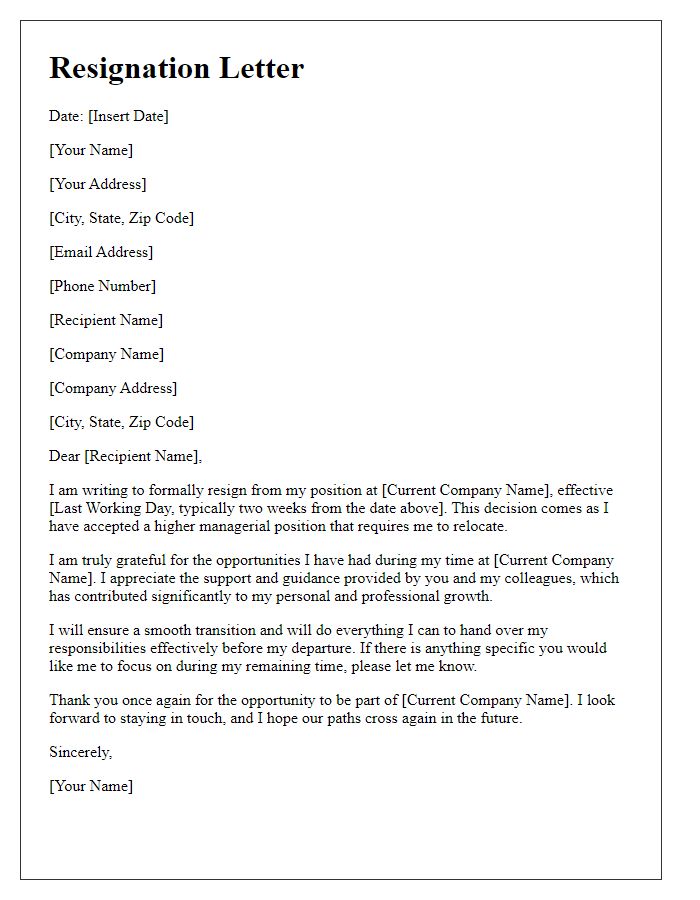
Letter template of resignation in order to take up a challenging managerial role.
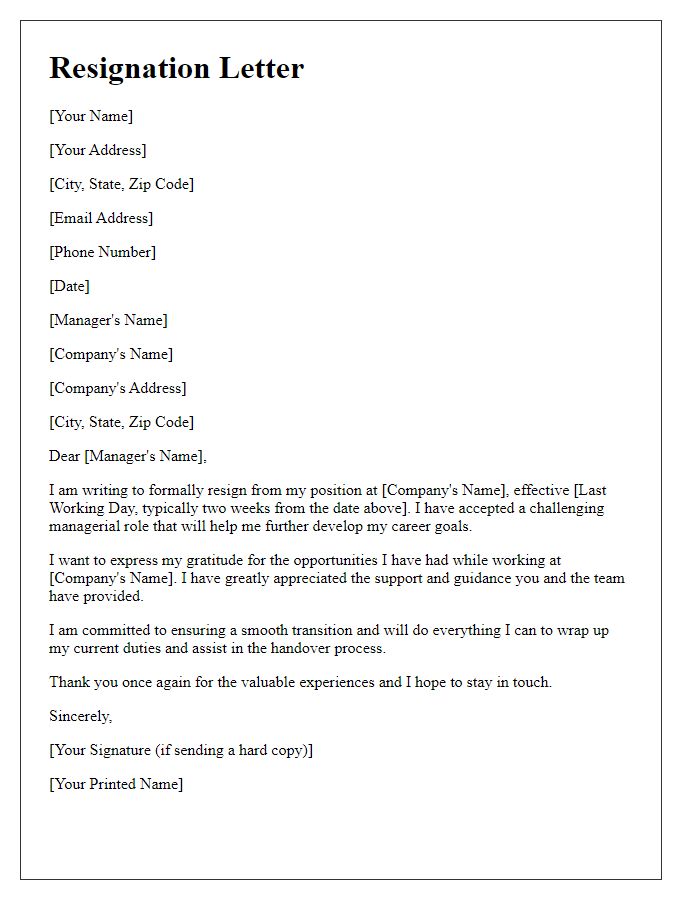

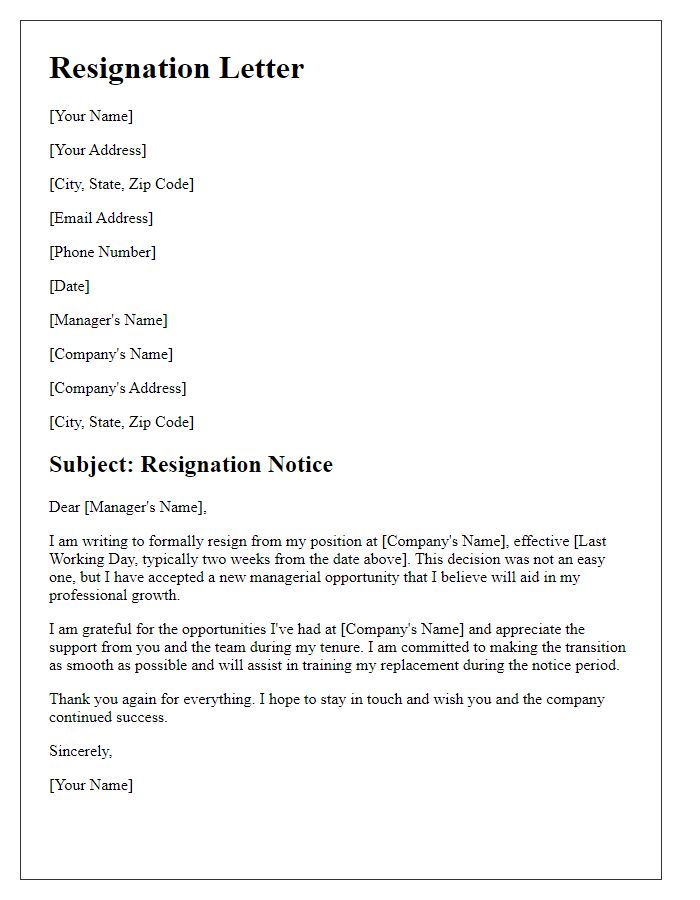


Comments